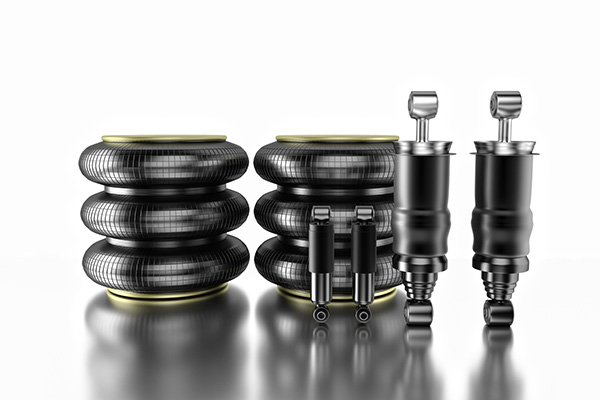
Owning a luxury car means having access to features designed to elevate the driving experience, with air suspension systems being one of the most popular. Known for delivering an almost effortless ride, air suspension systems adjust to changing road conditions and give you that coveted floating sensation on the road. However, while these systems offer a premium experience, they can also come with persistent issues that leave many luxury car owners asking, “Why does my air suspension keep failing?”
Air suspension failures are one of the more common problems among luxury car owners. To get a better understanding of what might be going wrong, let’s explore the main causes of air suspension problems and what you can do to keep your system running reliably.
What Is an Air Suspension System
An air suspension system is an advanced suspension mechanism that replaces traditional steel springs with air-filled bags or struts. These air-filled components are controlled by a compressor and an electronic control module, which adjust the vehicle’s height and cushioning to provide a comfortable and adaptable ride. When functioning correctly, air suspension systems help level the vehicle, absorb road impacts, and adjust to various driving conditions to maintain an even, smooth experience. However, as complex systems with many moving parts, they can encounter wear and tear over time, leading to malfunctions.
Common Reasons for Air Suspension Failures
1. Worn-Out Air Bags and Struts
The air bags or struts in an air suspension system are filled with pressurized air to support the vehicle's weight. Over time, these components are prone to wear, especially since they endure constant motion and pressure. Materials such as rubber, commonly used in airbags, will naturally degrade, crack, or develop leaks, leading to reduced air pressure in the suspension system. When air bags or struts begin to wear out, you may notice a noticeable sagging in your car’s stance or a rougher-than-usual ride.
Replacing worn-out air bags or struts is crucial for maintaining the integrity of your suspension system. However, keep in mind that this can be a costly repair, which is why many drivers opt for preventative maintenance.
2. Compressor Problems
The compressor is the heart of your air suspension system, responsible for filling the air bags and struts with the necessary pressure. If the compressor fails, your air suspension system loses its ability to maintain the correct ride height and balance. Compressors can burn out from overuse, which often happens when there’s a leak in the system. When the compressor works harder to make up for the loss in pressure, it’s only a matter of time before it fails entirely.
If your vehicle suddenly loses height or sags when parked, it’s a good idea to check the compressor. Replacing a compressor can be expensive, so detecting leaks and addressing them early can prevent your compressor from overworking and extend its lifespan.
3. Faulty Air Lines and Connections
Air lines are the tubes that carry pressurized air from the compressor to each suspension component. While small and often overlooked, these lines are critical to your air suspension system's functionality. Because they’re made of relatively thin materials, air lines can get damaged by road debris, general wear, or even minor impacts. When they become worn or develop leaks, you’ll notice a drop in the vehicle’s suspension height as air escapes from the system.
Replacing damaged air lines and ensuring secure connections can help keep your air suspension functioning as intended. Regular inspections are essential for spotting worn or loose connections before they lead to major issues.
4. Electrical Component Malfunctions
Your luxury car’s air suspension system isn’t just mechanical; it’s also packed with electronic components that control air distribution, monitor pressure levels, and make adjustments. Sensors, relays, and control modules all play a role in maintaining the ideal ride height and feel. Unfortunately, like any electronic system, these components can fail due to age, exposure to moisture, or general wear.
When an electronic malfunction occurs, you might notice warning lights on your dashboard or erratic suspension behavior. Diagnosing electronic issues often requires specialized equipment, so if you suspect an electrical problem, consult a professional who can identify the faulty components and make the necessary repairs.
5. Weather-Related Issues
Extreme temperatures, especially cold weather, can impact your air suspension system’s performance. Low temperatures can make the rubber components in air bags and lines stiff, leading to cracks or leaks. The compressor, too, can be affected by cold weather, as it has to work harder to generate the necessary pressure, which increases the risk of failure.
If you live in an area with cold winters, regular winter maintenance is essential to keep your air suspension in top shape. It may be wise to have your system inspected at the beginning of each season to identify any issues before they worsen in harsh weather.
How to Prevent Air Suspension Failures
Regular maintenance is the best way to prevent frequent air suspension issues. Checking for leaks, inspecting airlines, and monitoring the condition of your compressor can all help catch minor issues before they become major problems. Most importantly, early detection of any sagging, uneven ride height or strange noises can alert you to a potential problem with your air suspension system.
While repairs to air suspension systems can be costly, preventive maintenance is typically more affordable and can extend the life of your components. Consulting with a trusted repair shop will help you maintain your air suspension system without breaking the bank.
Trust JFM Motors for all your air suspension needs. We’re here to keep your luxury vehicle performing at its best. Schedule a service with us today and drive with confidence!